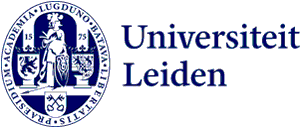
Dutch state returns stolen artefacts: ‘Make sure to tell the full story’
The Netherlands returned 478 artefacts to Indonesia and Sri Lanka this week, on the advice of a Dutch committee. Rightly so, says Leiden professor Pieter ter Keurs from the Museums, Collections and Society interdisciplinary research programme. ‘But do make it clear why you are returning something.’

Is it right that these works are being returned?
‘With most of the works, I would say yes. The “Lombok treasure” is a typical example of a looted object. But it also includes other collections, such as modern Balinese art and wooden statues. These works were never the property of the Dutch state but were loaned to Tropenmuseum. The collections ended up in Brussels because they had been brought from Bali by a diplomat who considered himself to be the head of state of the independent State of East Indonesia. This state existed between 1946 and 1950 before it became part of the state of Indonesia. The diplomat wanted to exhibit the works as examples of Balinese culture. But when he left he left the collections behind and they ended up at Tropenmuseum and have only now been requested by Indonesia. They are returning to their rightful owner but they weren’t looted.’
You find the committee’s argument weak as to why some collections have to be returned. Why is this?
‘This relates to statues from a temple in Java that were taken by the civil servant Nicolaus Engelhard in the first half of the 19th century. The committee has been unable to establish who the owner of the statues was. The temples were overgrown and had not been maintained by the local population. Nor is it known whether he negotiated with anyone about taking the statues. The committee says it is likely that the statues were taken illegally but there is no proof whatsoever for this. I’m not against returning these statutes but I think the reasons given are weak.’
Why do you think it is important to add some nuance?
‘Because nuance makes it clear that collecting is not always black and white. Collections also came about from good intentions in the past. There are known cases of Dutch civil servants who took artefacts but were very scrupulous in their dealings with the local population. Or who didn’t collect objects because they were still important to the people there. I don’t see any issue with returning works. But you should it clear per case why you are doing so and make sure to tell the full story.’
The artefacts were returned at Museum Volkenkunde, Leiden on Monday 10 July.
